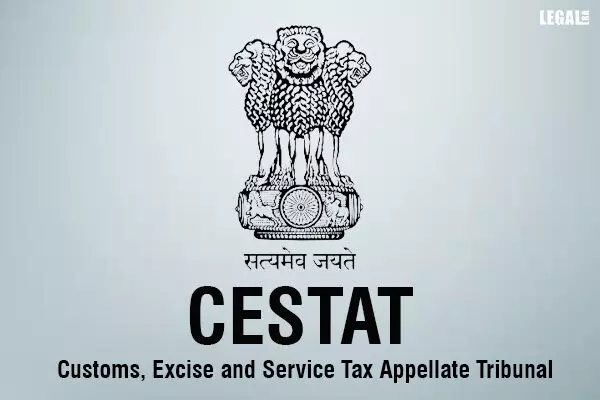- Home
- News
- Articles+
- Aerospace
- AI
- Agriculture
- Alternate Dispute Resolution
- Arbitration & Mediation
- Banking and Finance
- Bankruptcy
- Book Review
- Bribery & Corruption
- Commercial Litigation
- Competition Law
- Conference Reports
- Consumer Products
- Contract
- Corporate Governance
- Corporate Law
- Covid-19
- Cryptocurrency
- Cybersecurity
- Data Protection
- Defence
- Digital Economy
- E-commerce
- Employment Law
- Energy and Natural Resources
- Entertainment and Sports Law
- Environmental Law
- ESG
- FDI
- Food and Beverage
- Gaming
- Health Care
- IBC Diaries
- In Focus
- Inclusion & Diversity
- Insurance Law
- Intellectual Property
- International Law
- IP & Tech Era
- Know the Law
- Labour Laws
- Law & Policy and Regulation
- Litigation
- Litigation Funding
- Manufacturing
- Mergers & Acquisitions
- NFTs
- Privacy
- Private Equity
- Project Finance
- Real Estate
- Risk and Compliance
- Student Corner
- Take On Board
- Tax
- Technology Media and Telecom
- Tributes
- Viewpoint
- Zoom In
- Law Firms
- In-House
- Rankings
- E-Magazine
- Legal Era TV
- Events
- News
- Articles
- Aerospace
- AI
- Agriculture
- Alternate Dispute Resolution
- Arbitration & Mediation
- Banking and Finance
- Bankruptcy
- Book Review
- Bribery & Corruption
- Commercial Litigation
- Competition Law
- Conference Reports
- Consumer Products
- Contract
- Corporate Governance
- Corporate Law
- Covid-19
- Cryptocurrency
- Cybersecurity
- Data Protection
- Defence
- Digital Economy
- E-commerce
- Employment Law
- Energy and Natural Resources
- Entertainment and Sports Law
- Environmental Law
- ESG
- FDI
- Food and Beverage
- Gaming
- Health Care
- IBC Diaries
- In Focus
- Inclusion & Diversity
- Insurance Law
- Intellectual Property
- International Law
- IP & Tech Era
- Know the Law
- Labour Laws
- Law & Policy and Regulation
- Litigation
- Litigation Funding
- Manufacturing
- Mergers & Acquisitions
- NFTs
- Privacy
- Private Equity
- Project Finance
- Real Estate
- Risk and Compliance
- Student Corner
- Take On Board
- Tax
- Technology Media and Telecom
- Tributes
- Viewpoint
- Zoom In
- Law Firms
- In-House
- Rankings
- E-Magazine
- Legal Era TV
- Events
CESTAT Cancels Service Tax Demand Against PVS Multiplex, As Film Screening Not In Purview Of ‘Business Support Service’

CESTAT Cancels Service Tax Demand Against PVS Multiplex, As Film Screening Not In Purview Of ‘Business Support Service’
Cites its ruling in a similar previous case
The Allahabad bench of the Customs, Excise, and Service Tax Appellate Tribunal (CESTAT) has quashed the service tax demand against PVS Multiplex India while stating that screening of films was not categorized under ‘business support service’.
The bench comprising P.K. Choudhary (Judicial Member) and Sanjiv Srivastava (Technical Member) cited its decision in the Inox Leisure Ltd case, wherein it was held that 'Business Support Service' was generic to provide 'support to the business or commerce of the service receiver'.
It explained that the principal activity was undertaken by the client, while assistance or support was provided by the taxable service provider. The theatre owner exhibits a movie provided by the distributor. Since it is not a support or assistance activity, it does not fall under the category.
The appellant/assessee has service tax registration for providing ‘renting of immovable property service’, under Section 65(105)(zzzz) of the Finance Act, 1994.
The assessee screened movies in his multiplex on a revenue-sharing basis to the film distributors and did not pay service tax.
The revenue department issued a show-cause notice demanding service tax for film screening under the ‘business support service’ category and the Commissioner confirmed the demand.
The assessee contended that he did not provide any support service to the film distributors, hence, the pre-negative service era was not relevant.
The CESTAT allowed the appeal of the assessee and held that movie screening was not a taxable service, except when the distributor leased out the theatre and the owner received a fixed rent.
It added that in such a scenario, the service provided by the theatre owner would be classified as 'renting of immovable property for furtherance of business or commerce'. The owner would then be liable to pay tax.


